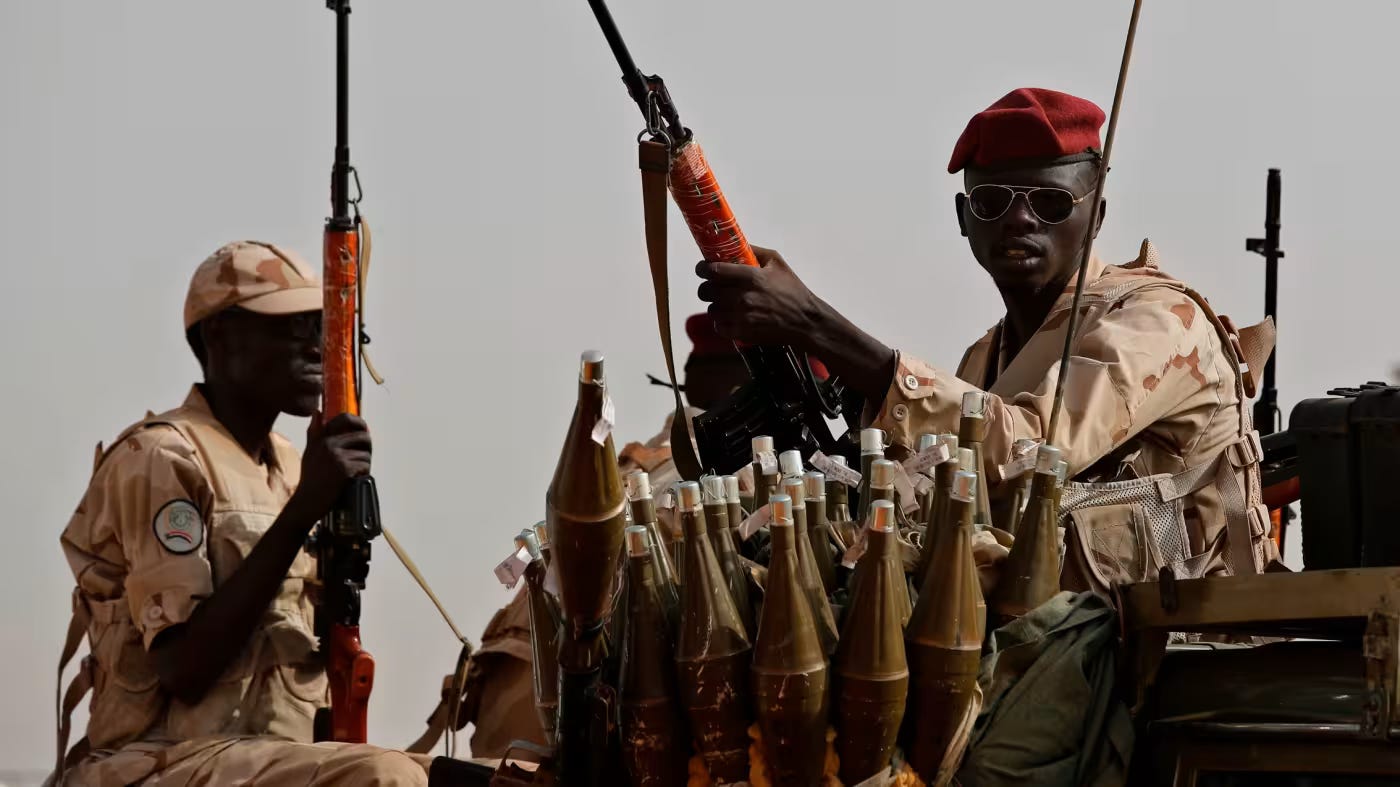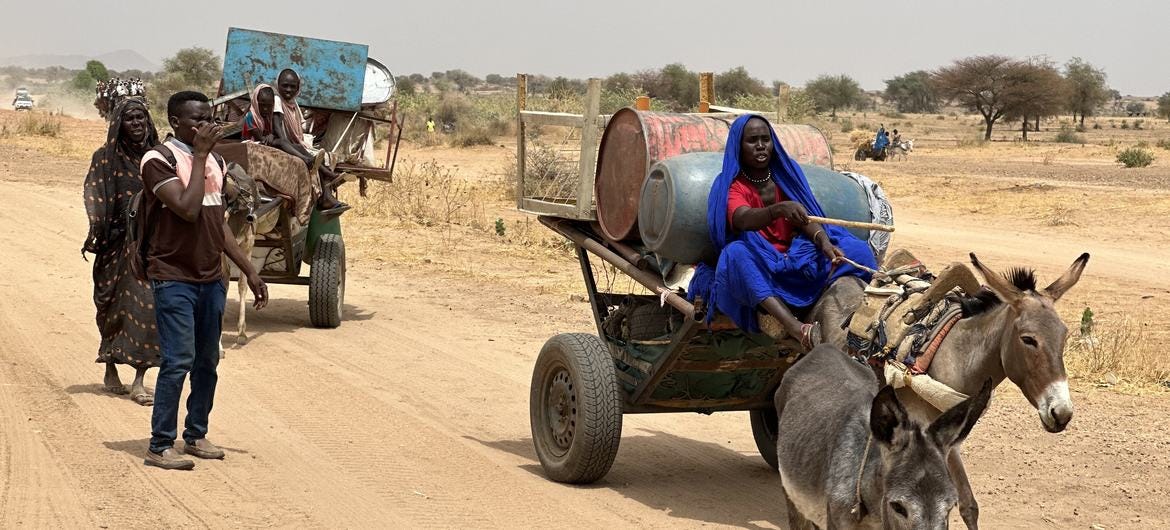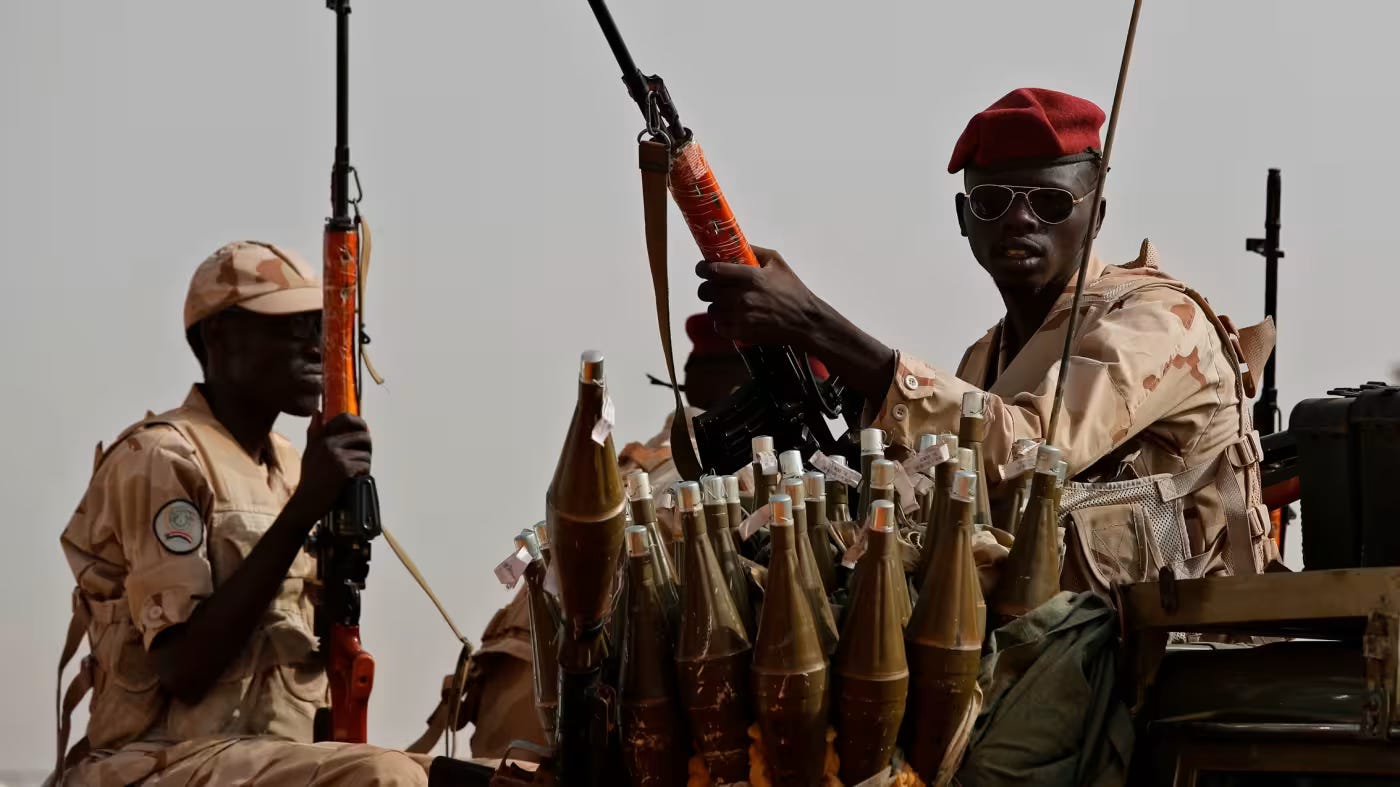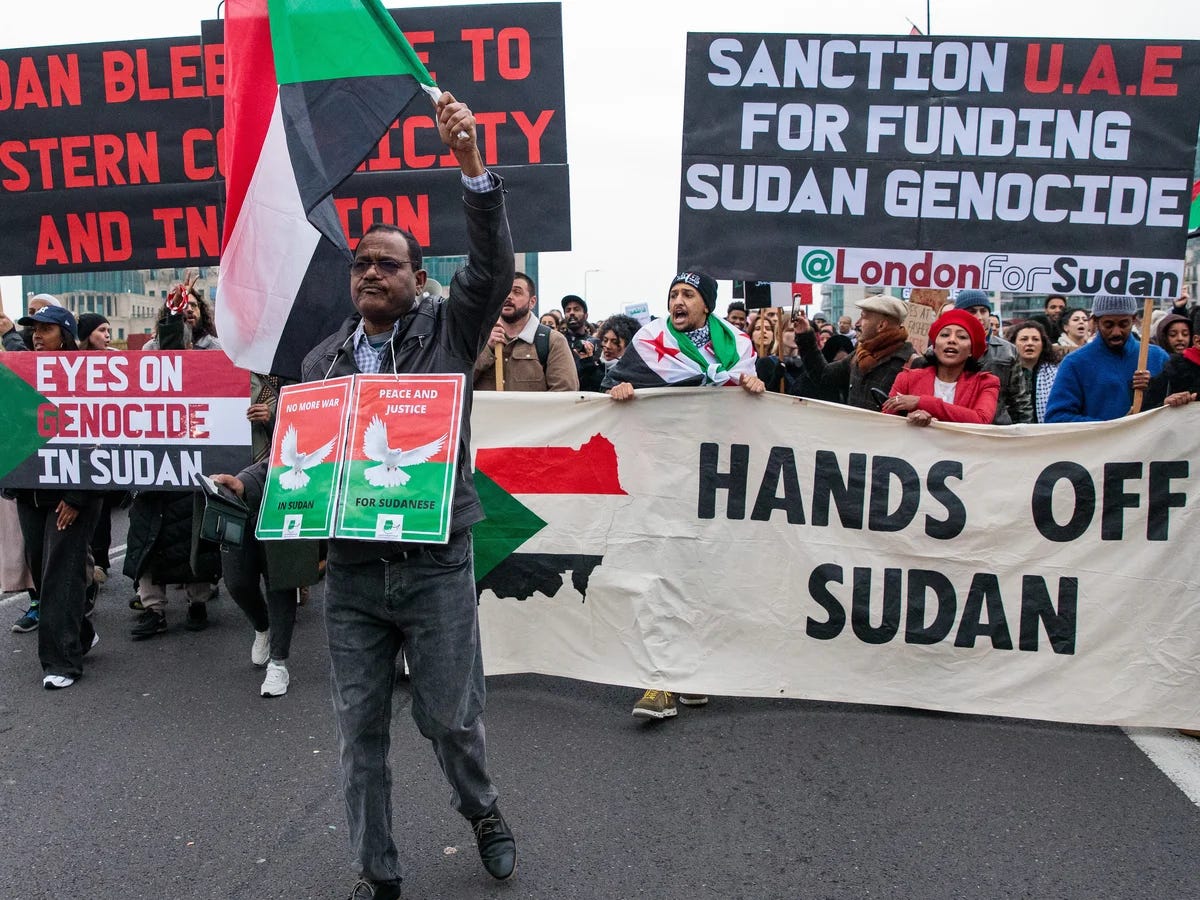For nearly three years, questions have repeatedly surfaced regarding the supply chains and financial backing that have enabled the Rapid Support Forces (RSF) to continue committing horrific massacres against the people of Sudan.
Since the onset of the war, the RSF has followed a brutal pattern massacres, looting, and indiscriminate killings of men and boys, the rape and abduction of women, sexual enslavement, even the rape of children, and the mass displacement of civilians from their homes and communities.
This pattern has played out in several cities across Al Jazirah and Sennar states, parts of the capital, and the RSF’s current strongholds in Darfur and Kordofan. In these regions, the atrocities have taken on an increasingly ethnic dimension. Yet, reports tend to single out the United Arab Emirates (UAE) while ignoring the more complex web of local and regional dynamics that have shaped the situation we see today.
The RSF as an Independent Economic Power
From the outset, RSF leader Mohamed Hamdan Dagalo widely known as Hemeti sought to establish financial independence for his forces. He achieved this well before the 2018 revolution and the ouster of former President Omar al-Bashir, taking advantage of a law passed by Sudan’s parliament in January 2017 that freed the RSF from subordination to the national intelligence services.
Over 30,000 RSF fighters participated in the war in Yemen, fighting alongside Sudanese military forces. Separate reports suggest direct arrangements between the RSF and the UAE to deploy fighters to Yemen.
In 2016, the RSF also took part in the EU-backed “Khartoum Process” to combat human trafficking an initiative that improved the group’s financial standing. Concurrently, the RSF seized control of Jebel Amer, one of Sudan’s largest gold mines, along with other mining sites across Darfur and Kordofan.
During this period, the RSF established companies and investments both inside Sudan and abroad to further boost its revenue. Hemeti also actively pursued ties with foreign governments to bolster his influence within Sudan.
El Fasher Under Siege: Foreign Supply Lines
By the time war erupted, the RSF had significantly expanded its political and economic power during Sudan’s transitional period and had cemented ties with several foreign governments.
Reports estimated the RSF’s manpower at between 100,000 and 130,000 fighters, with access to around 100,000 combat vehicles and BTR armored units. Continued funding and arms shipments from regional allies such as Chad, eastern Libya, and the Central African Republic as well as from international partners like the UAE and Russia’s Wagner Group, have bolstered the RSF’s combat power.
The group has also been accused of forced recruitment and the use of child soldiers, and at various points during the conflict, it seized several weapons manufacturing plants.
Sources report that the RSF possesses Chinese-made drones originally sold to the UAE drones that have been used in attacks on El Fasher and Port Sudan.
A doctor at El Fasher’s southern hospital, speaking anonymously to Noon Post, confirmed that Colombian mercenaries were fighting alongside the RSF in battles around the city, recalling being summoned to treat one such fighter who had already died.
Video evidence and military reports confirm that Colombian fighters were brought in via Emirati contractors and deployed to RSF units fighting in western Sudan, often entering the country through Chad.
A Guardian investigation revealed that British-manufactured weapons had ended up in RSF hands items originally exported to the UAE, including weapons training systems and armored vehicle engines.
The UK has continued to approve arms exports to the UAE in unlimited quantities, with no monitoring of their final destinations, despite evidence submitted to the UN Security Council implicating the UAE in financing the RSF.
UAE-Backed Proxies in Sudan’s War
According to political analyst Dr. Mohamed Torshin, several of the foreign actors involved in Sudan’s conflict whether Chad, eastern Libya, South Sudan, or the Central African Republic are operating as proxies on behalf of the UAE.
Many of these actors seek direct international recognition and are incentivized by Emirati promises of generous investments in key economic sectors.
These countries have also become corridors for transporting military supplies to the RSF. The war has enabled Chad and the Central African Republic to rid themselves of rebel groups that had been destabilizing their regimes by dragging them into Sudan’s conflict.
Naked Economic Interests
At the core of these interventions lies an unmistakably economic agenda. Sudan boasts rich agricultural, livestock, and mineral resources, a strategic location with the longest Red Sea coastline in the region, and key land routes within the Horn of Africa.
Brigadier General Dr. Amin Ismail Majzoub, an expert in crisis management at the Strategic Research Center, attributes the UAE’s support for the RSF often funneled through neighboring countries to its desire to control Sudan’s vast economic potential.
He cites its logistical and military support to the RSF, including medical treatment for wounded fighters in neighboring states, the provision of airports for transport operations, and the deployment of mercenaries from across Africa and beyond.
Dr. Torshin adds that gum arabic smuggling is one of the UAE’s key economic incentives for supporting the RSF.
He explains: “The UAE’s foreign policy of countering political Islam is not the sole driver of its involvement in Sudan’s conflict. That’s merely a cover for broader economic goals especially gold exports, which have been central to UAE-Sudan relations since the Bashir era.
At that time, Sudan used the UAE to bypass US sanctions. The UAE has also long sought access to Sudan’s ports and even attempted to secure them through a Thai company under the previous regime.”
A Green Light for Bloodshed?
Torshin believes the UAE could not be playing such an extensive role without tacit approval from powerful nations or influential players within the international system. He argues that weakening Sudan may serve the security interests of Israel and broader regional “stability,” according to some analysts.
Majzoub stresses the urgent need for the international community, its institutions, and the UN Security Council to intervene and halt the funding and arming of the RSF. “The international community is coddling this militia,” he said. “The sanctions imposed are token gestures, targeting only individuals and companies hardly a serious response to the crimes committed.”
Sudanese military analyst Dr. Mohamed Khalil added: “Calls by the US House Foreign Affairs Committee to designate the RSF as a Foreign Terrorist Organization are the bare minimum for describing this brutal militia.”
Financing a War of Attrition
Regional and international support for the RSF has recently influenced the trajectory of Sudan’s military operations. But analysts and activists are now voicing alarm that this continued backing could fuel a long-term war of attrition one that threatens Sudan’s territorial integrity and emboldens separatist calls in the western region.
Majzoub warns that the fall of El Fasher and Bara to the RSF carries significant security, economic, and military consequences. “The RSF now has unhindered movement along a crucial axis,” he said. “This could endanger other fronts, including the Blue Nile, Omdurman, and the Northern State.”
Torshin echoes this concern, stating that the RSF has expanded along key routes, potentially encircling safer areas and enabling drone attacks that could destabilize Khartoum and surrounding regions. This, he says, will likely delay any voluntary return of displaced populations and keep war the dominant scenario for the foreseeable future.
He adds that negotiations will remain stalled, as the RSF is unlikely to accept any talks that threaten its military or political gains terms the army would reject. As a result, both sides are likely to continue fighting in pursuit of battlefield victories that can improve their negotiating positions.
Dr. Khalil, meanwhile, downplays talk of western Sudan seceding, pointing to a nationwide rejection of the RSF and widespread condemnation of the massacres in El Fasher and Bara. He argues that the RSF’s flagrant violations of international law and the Geneva Conventions will ultimately hasten its downfall.
In recent days, protests have erupted in several global capitals denouncing RSF atrocities in El Fasher and Bara. Local and regional human rights groups have called for a boycott of the UAE over its role in funding ethnic cleansing and the mass killing of civilians in Sudan.
The RSF has previously been accused of carrying out mass atrocities in Geneina, in western Sudan, and in villages like Al-Saraha and Wad Al-Noura in Al Jazirah State. The group has also been linked to numerous massacres across Kordofan and Darfur.





